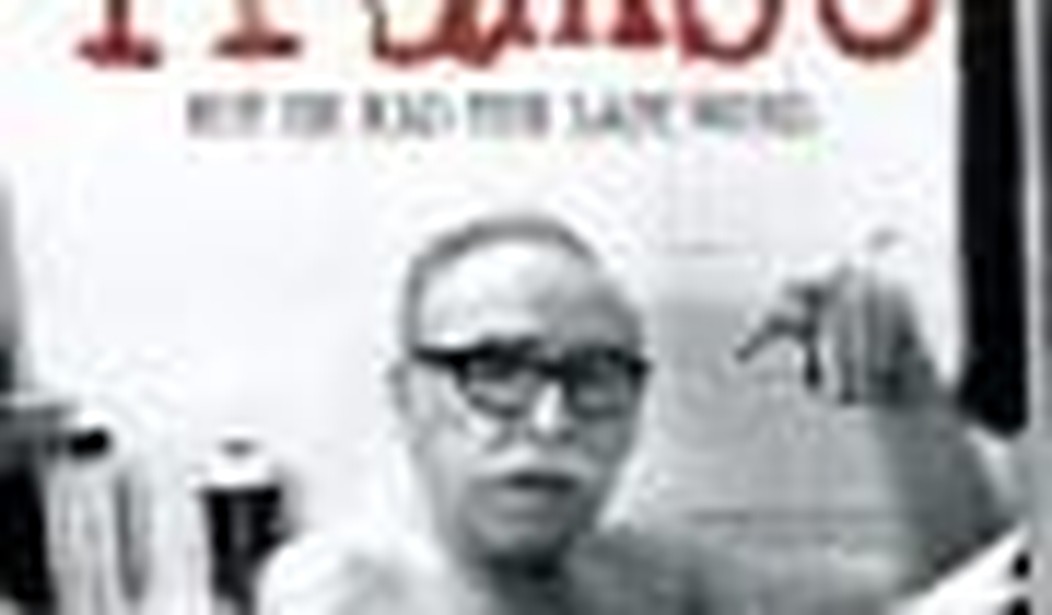Trumbo, a new documentary recalling the life and career of blacklisted screenwriter Dalton Trumbo, clearly wants to honor its subject.
And Trumbo, based on a stage play written by Trumbo’s son Christopher Trumbo, does just that. But the film’s take on the Oscar-winning scribe and Communist sympathizer proves revealing in ways the audience might not expect.
The writer rejected his homeland’s economic system but couldn’t wait to cash his screenwriting checks. He spoke of the horrors of war but dreamed of smiting his enemies with a fury that doesn’t befit a man of peace. And he clearly relished his role as a martyr, going so far as to view his children’s challenges as another cross for him to bear.
Victims of the blacklist remain a key source of anger among today’s Hollywood elite. Recall the bitter reaction during the 1999 Academy Awards ceremony when director Elia Kazan, who “named names” to the House Un-American Activities Committee, got a Lifetime Achievement Award.
So it’s easy to understand why a modest documentary assembled such an impressive roster of actors — Michael Douglas, Joan Allen, and Paul Giamatti to name a few — to read some of Trumbo’s letters to friends and foes alike.
Those readings, combined with clips of Trumbo himself addressing his situation, flesh out a story that leaps back and forth in time to clumsy effect.
Documenting a screenwriter’s battle with the government hardly gives Trumbo director Peter Askin much room for theatricality. So he cheats, occasionally with excellent results. He has the actors read their letters in a faux stage setting, stripped of most props save a glass of water and a generous dose of self-righteous rage.
The letters themselves seem as if Trumbo had peered into the future and seen the lineup of actors eager to read them. They’re the meticulous ramblings of a man who saw any letter as an opportunity to tap his prodigious vocabulary.
The film deals with the intricacies of his battle with the phone company, but it never discusses Trumbo’s political viewpoints. That mirrors Trumbo’s assertion that such matters should be deeply personal, and private.
But politics aren’t always private, especially when the person in question uses his powers to affect the masses. Trumbo’s screenplays often reflected his ideological views, making his beliefs more than just a personal matter. A clip from his film Johnny Got His Gun is particularly chilling.
And Trumbo doesn’t mention the atrocities, or at the very least the freedom-clamping effect, of the Soviets’ brand of Communism. That wouldn’t fit in neatly with this narrative.
Trumbo was a rigorously talented man, an artist whose love for writing matched his prodigious output. Being blacklisted meant he kept on writing but under assumed names. He even won an Oscar for a story initially credited to someone else to escape the blacklist’s reach.
But his moral center didn’t always square with his oversized heart.
Let’s face it. Trumbo took a deeply un-American position — embracing the ideology of the country’s enemy — and stuck pro-Communist messages in his screenplays.
He saw conspiracies everywhere, even at his daughter’s elementary school. Actor David Strathairn reads a corrosive letter he wrote to his daughter’s school principal. Seems the young Trumbo bore the brunt of his reputation, and he claimed everyone up to the area PTA was to blame.
How many school children have had their love of learning soured by the taunts of their schoolyard peers or sullied by the local bully? But most fathers don’t have the skill, or the chutzpah, to write the letters Trumbo fired off to the school principal.
Trumbo serves as another example of Hollywood’s selective outrage. The industry didn’t bat an eye over Woody Allen’s less-than-honorable romantic pursuits in the 1990s, but it’s hard to imagine actors eager to work with Mel Gibson following his anti-semitic rant.
Heck, the industry won’t even take a stand against the forces trying to extinguish all smoking from movie screens. And while Trumbo served a year in jail for contempt of Congress, his Hollywood peers at the time deserve some blame for failing to fight back against the blacklist once he regained his freedom.
That doesn’t diminish, or excuse, how the government treated Communist sympathizers of the era. Either we’re a country where citizens can hold any position they wish or we’re not. During the McCarthy era, that distinction got muddied and people’s lives were forever tarnished as a result.
Trumbo ultimately tries to wrap itself, and its hero, in the American flag. A final image of the screenwriter has that flag fluttering in the background.
Trumbo could easily be seen as a talented screenwriter, a caring father, and a man so stubborn he was willing to be jailed rather than appease a broken system. But let’s leave the “patriot” label to other, more deserving Americans.









Join the conversation as a VIP Member